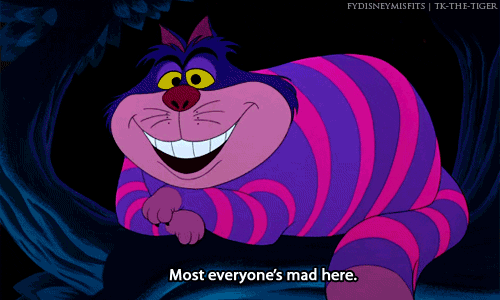The Resilient Actor
When it comes to the survival of our planet, some believe we're past the point of no return. Perhaps we are. But nature's astonishing response to humanity's pandemic pause provided a glimpse, at least, of hope.
While 2020 challenged Homo sapiens in unprecedented ways, the Earth was having a fiesta. In a matter of months, the air was fresher, the water cleaner, and animals were able to roam unencumbered. It was a poignant display of our planet's phenomenal resilience.
The Oxford Dictionary of English defines resilience as "the capacity to recover quickly from difficulties". Which is fine and all, but we prefer to draw from the word’s Latin root — resilient — meaning "leaping back". There's something about the energetic, willing "leaping" that so perfectly captures the attitude us actors should strive to embody. Because if there's any craft that could benefit from developing this trait, it's surely ours.
Tell me why
(Fist bumps to those who broke out into the Backstreet Boys refrain.)
If we've been playing this actor game for some time now, we'll be well aware of the obstacles one faces on this path. There's the rejection, for example. There's the lack of control. There's the sometimes brutal feedback.
The sooner we accept these experiences as simply part of the game we've voluntarily signed up to play, the better. We'll save ourselves a whole lotta frustration and bitterness. The game, therefore, becomes more delightful, less of a burden. Remember, we voluntarily signed up to play in this sandpit — ostensibly because we enjoy it. And because a resilient approach leads to greater enjoyment, we're likely to stick around while others tap out around us. From Mr Charles Darwin: "It's not the strongest of a species that survive, nor the most intelligent, but the ones most resilient and responsive to change".
Resilience also helps us see challenges and obstacles for what they are: an opportunity to level up. Instead of complaining or throwing in the towel in the face of these encounters, we secretly begin to wonder what next-level magic we're being primed for. As C.S. Lewis so superbly put it, "Hardships often prepare ordinary people for an extraordinary destiny". Lewis knows, friends. Lewis knows.

Control the controllables
So how do we cultivate this resilience?
We strongly champion the "mindset matters most" mantra at the Dojo, so when it comes to building resilience, mindset is where we start.
Ben Bergeron, one of the world's top CrossFit coaches, has a powerful framework for assessing and optimising our current mental state — resilience being a key characteristic of the higher end of the spectrum. Recommended mental practises include:
- Accepting change. Life is change. Awesomeness will arise, adversity will arise. Neither are permanent or personal. Can we respond wisely to both?
- Taking responsibility. Not only for our mindset but also for the handful of physical factors within our control (more on this below).
- Uncovering the upside. Can we look beyond the immediate setback and find the silver lining? Always assume there's benefit to be found — however large or small.
- Making game plans. Hope for the best, but have a plan for the worst. We mightn't have to use it, but it's tremendously empowering to have one in our back pocket regardless.
- Seeking (aligned) challenges. By voluntarily taking on reasonable challenges when life is breezy, we begin to foster a strong sense of self-efficacy. This self-efficacy is gold dust.
There are also several strategies we can employ at the physical level. These include:
- Eating right. Low-quality foods hinder our ability to get back on track. To side-step bloating, brain fog, inflammation, and sluggishness, optimising nutrition is critical.
- Prioritising sleep. Legit, homies. The better our minds are functioning, the more efficiently and effectively we'll be able to navigate difficult situations.
- Exercising regularly. By exposing our body to short bursts of planned stress (i.e. exercise), we develop confidence in its ability to take on the many unplanned stressors.
- Investing in relationships. It doesn't matter who these folk are, just that caring, trustworthy folk exist. If they can also bring a sense of humour to the table, all the better.
- Realigning with purpose. Returning to our inner compass often is everything. If we've defined our personal definition of success, this will be easy-peasy. Return return return.
There are times when we may want — and need — to consider quitting. This is true. For the most part, however, we simply need to dig our resilience wells a little deeper. Like the Earth, our spirits are capable of "leaping back" in astounding ways.
Thoughts / feedback / challenges? We'd genuinely love to hear.
Need some 1-On-1 attention? Book your coaching session today.
